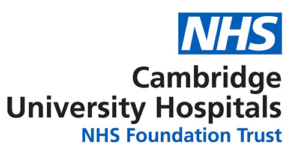HoloScenarios: Respiratory Module
A collaboration with Cambridge University Hospitals NHS Foundation Trust and University of Cambridge
Patient with a background of asthma usually controlled at home with inhalers, brought to the emergency department by ambulance after becoming increasingly short of breath at work.
Patient with a background of angina, presenting with acute chest pain.
Patient who has been admitted to hospital with an acute complicated urinary tract infection, complaining of shortness of breath.
Patient with a background of asthma usually controlled at home with inhalers, brought to the emergency department by ambulance after becoming increasingly short of breath at work.
Patient with a background of angina, presenting with acute chest pain.
Patient who has been admitted to hospital with an acute complicated urinary tract infection, complaining of shortness of breath.
Branching logic allows the same simulation to produce many permutations of outcome.
Notice intricate and subtle visual cues, like the accessory muscles of a patient indicating trouble with breathing.
Choose the right dose and delivery mechanism then administer appropritately while saving thousands of dollars per learner on consumbales
Use your headet or mobile phone to generate large medical devices, small tools, and consumables

Cambridge is where expert care, delivered with kindness, sits alongside a relentless effort to push at the limits of what medicine can achieve. Our hospitals – Addenbrookeʼs and the Rosie – are at the forefront of the NHS delivering expert care for patients – locally, regionally and nationally. Our vibrant teaching community equips and empowers our staff for the future. Weʼre uniquely situated on the Cambridge Biomedical Campus, bringing together healthcare, academia, business and the best life science researchers to lead some of the most important biomedical research in the world today.

As one of the worldʼs leading departments for education, the Faculty of Education at the University of Cambridge undertakes teaching and research that addresses these issues on an international scale. Its influence and impact touch communities worldwide, in particular those which are least-advantaged: from opportunity areas in the United Kingdom, to some of the worldʼs poorest families in the Global South. The Faculty has the experience and capacity to set new agendas and to lead the implementation of new thinking in policy and practice. It has particular strengths in education and international development, the psychology of education, and policy-focused research. Most of our research is undertaken through collaborative partnerships that cut across sectors, disciplines and boundaries. Through these, the Faculty aims to deliver research that achieves deep and lasting results: unlocking potential, creating opportunities and enabling happier, healthier lives.